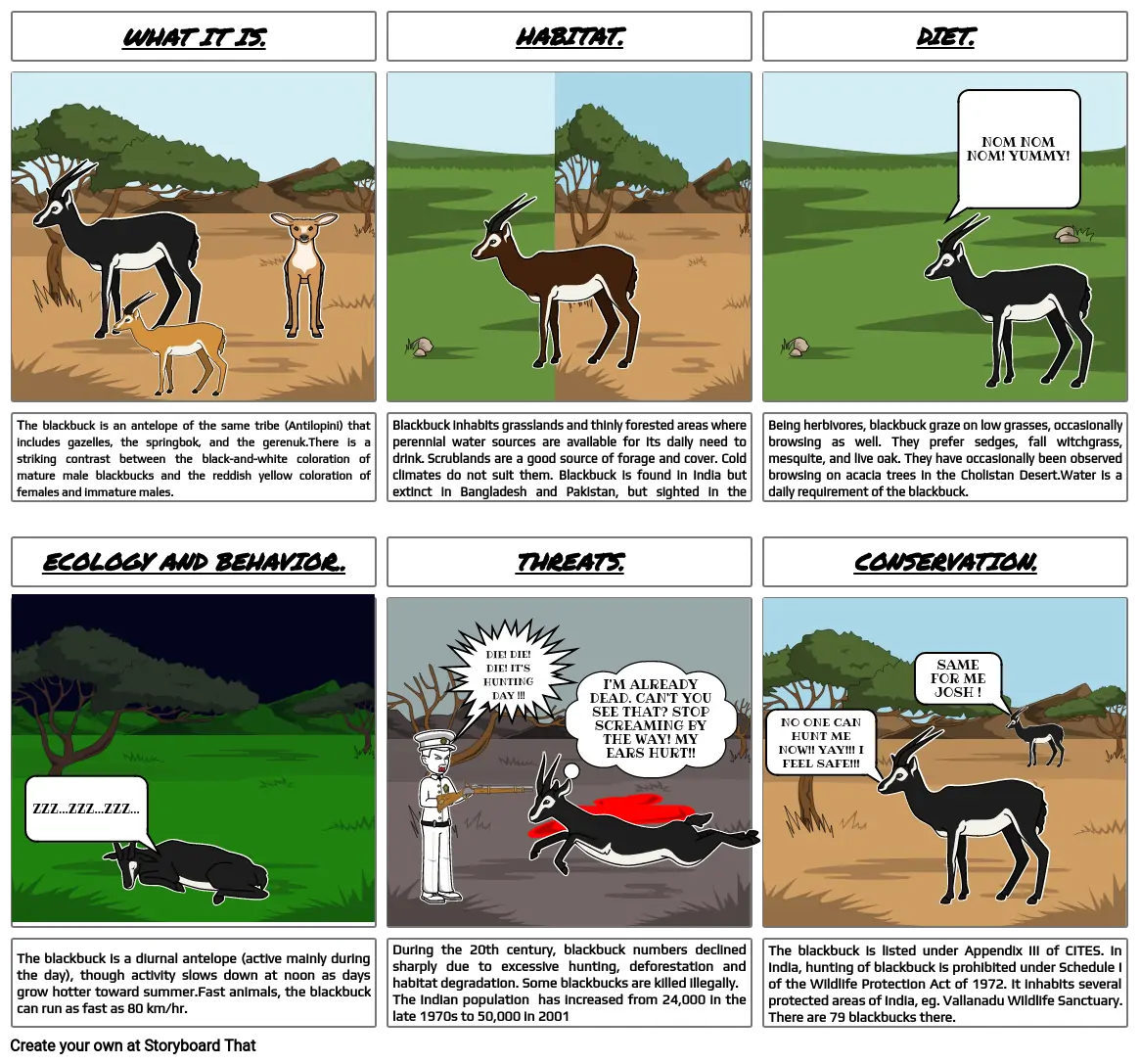blackbuck

Text z Príbehu
- WHAT IT IS.
- HABITAT.
- DIET.
- NOM NOM NOM! YUMMY!
- The blackbuck is an antelope of the same tribe (Antilopini) that includes gazelles, the springbok, and the gerenuk.There is a striking contrast between the black-and-white coloration of mature male blackbucks and the reddish yellow coloration of females and immature males.
- ECOLOGY AND BEHAVIOR..
- Blackbuck inhabits grasslands and thinly forested areas where perennial water sources are available for its daily need to drink. Scrublands are a good source of forage and cover. Cold climates do not suit them. Blackbuck is found in India but extinct in Bangladesh and Pakistan, but sighted in the borders.
- THREATS.
- DIE! DIE! DIE! IT'S HUNTING DAY !!!
- I'M ALREADY DEAD. CAN'T YOU SEE THAT? STOP SCREAMING BY THE WAY! MY EARS HURT!!
- Being herbivores, blackbuck graze on low grasses, occasionally browsing as well. They prefer sedges, fall witchgrass, mesquite, and live oak. They have occasionally been observed browsing on acacia trees in the Cholistan Desert.Water is a daily requirement of the blackbuck.
- CONSERVATION.
- SAME FOR ME JOSH !
- The blackbuck is a diurnal antelope (active mainly during the day), though activity slows down at noon as days grow hotter toward summer.Fast animals, the blackbuck can run as fast as 80 km/hr.
- ZZZ...ZZZ...ZZZ...
- D.During the 20th century, blackbuck numbers declined sharply due to excessive hunting, deforestation and habitat degradation. Some blackbucks are killed illegally.The Indian population has increased from 24,000 in the late 1970s to 50,000 in 2001
- The blackbuck is listed under Appendix III of CITES. In India, hunting of blackbuck is prohibited under Schedule I of the Wildlife Protection Act of 1972. It inhabits several protected areas of India, eg. Vallanadu Wildlife Sanctuary. There are 79 blackbucks there.
- NO ONE CAN HUNT ME NOW!! YAY!!! I FEEL SAFE!!!
Bolo vytvorených viac ako 30 miliónov storyboardov

